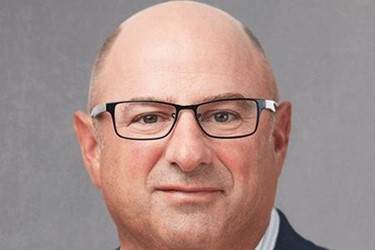Seattle Genetics Legacy Of Partnering

By Rob Wright, Chief Editor, Life Science Leader
Follow Me On Twitter @RfwrightLSL

The March 2018 issue of Life Science Leader features Clay Siegall, founder, president, CEO, and chairman of Seattle Genetics. Siegall was interviewed in San Francisco during the 36th Annual J.P. Morgan Healthcare Conference (JPM). One of the challenges of producing a print publication is there isn’t always space to share all of the great insights from an executive like Siegall. That’s one of the reasons we created our exclusive, Beyond The Printed Page section on our website. And while access to this continues to be free, to read the comprehensive feature involving Seattle Genetics you need to be a subscriber — which you can do here. We hope you enjoy this latest Beyond The Printed Page installment.
When Clay Siegall, Ph.D., looks back on 2009, two years prior to gaining an FDA approval for ADCETRIS, the CEO says he knew then the company had a really good product likely to gain approval. “But we had no experience launching a commercial effort,” he admits. The company initially made the decision that it would build a commercial team to focus on the U.S. and Canada. “We wanted the U.S. because it’s the largest market in the world and where we’re based,” he shares. Seattle Genetics wanted Canada because Health Canada runs drug approvals similar to that of Europe (i.e., approval and reimbursement occur province by province and involve the review of pharmacoeconomic data). “As we had plans on eventually launching products in the EU, we believed the experience of working with Health Canada would get us attuned to the European approval process,” he says. And while Siegall feels the company did a good job with ADCETRIS in these two regions, for launching in the rest of the world they wanted a partner. “We struck a deal with Takeda where they paid us substantial dollars up front and milestone payments,” he shares. “Takeda also agreed to help fund half of all the clinical trial work we were doing.” Siegall says the decision to partner with Takeda was pretty much a no-brainer, as they had experience selling around the globe.
When asked how such partnerships begin, the CEO credits his business development team. “Sometimes it is their outreach efforts, and other times it is companies contacting us,” he states. “But no matter who initiates the contact, what typically drives a conversation is a drug’s data.” Prior to inking the deal with Takeda, the company had multiple offers in the works. However, some companies wanted half of its U.S. business, which Siegall had no interest in giving up.
Seattle Genetics also has a 50-50 partnership with Astellas for its drug, Enfortumab vedotin (EV), a drug that started a registration trial in October 2017 for relapsed refractory patients with urothelial carcinoma, the most prevalent subtype of which is bladder cancer. “This partnership actually began with Agensys, a private company based in Santa Monica, CA,” Siegall shares. “I think Astellas saw what they were doing and acquired the company before we could.” The deal has a different structure than the one with Takeda. “With Astellas we have 50-50 co-ownership for EV around the globe, no matter who markets the product, or in which country,” he states. In addition to co-ownership, the deal also involves cofunding for all of the required development work to bring the drug to market. Seattle Genetics has a similar 50-50 deal structure with Genmab for Tisotumab vedotin (TV), a drug entering an approval trial in the first half of 2018 and targeting relapsed or refractory patients with cervical cancer. “Genmab is one of the most successful European biotechs,” he says. “One of their products, Daratumumab is now a multiple myeloma blockbuster.”
Siegall is proud of his company’s partnerships. However, as Seattle Genetics continues to grow and mature, it is moving away from the need to partner. “We completely own Ladiratuzumab vedotin (LV), an ADC in development for breast cancer,” he explains. “Our intention is to launch LV ourselves, not only in the U.S., but in the rest of the world.” To that end, the company opened SeaGen International GmbH, a Seattle Genetics business unit in Switzerland. “Having executed clinical trials all over the world, our drug development efforts always have been global. We now want our commercial efforts to become more global, as well.”
Want to read more about Clay Siegall? Be sure to check out this Beyond The Printed Page where he reveals what surprised him most from the founding of Seattle Genetics.
